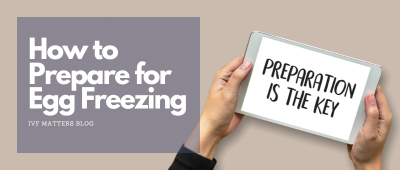If you’re considering preserving your fertility by freezing your eggs, you’re probably wondering how many eggs you should ideally aim to freeze to give yourself the best chance of having a baby in the future.
Unfortunately, however, there are no hard and fast answers when it comes to deciding on the right number of eggs to freeze. Each woman is different, so the number of eggs you should freeze will vary depending on your personal fertility and, most importantly, your age.
In this article, we look at all the factors that could impact your chances for success and provide a rough guideline for how many eggs you may need to freeze by age to achieve your ideal future family planning ambitions.

Key factors that impact egg-freezing success
Several factors can affect egg-freezing success rates.
Eggs that are frozen using vitrification, for instance, have a 90-95% chance of surviving the thawing process. Likewise, the quality of the sperm can also affect fertilisation rates – of these eggs that do become fertilised, not all will develop into healthy blastocysts.
However, the most influential factor behind your overall success rate is the age at which you decide to undergo egg-freezing treatment.
When should you freeze your eggs?
Women are born with all the eggs that they will ever have in their lifetime.
As you age, the quality and quantity of your eggs will slowly decline until you reach your mid-thirties. At this point, the decline will happen much more quickly.
Generally speaking, the older you are, the more likely it is that your eggs might not fertilise or have genetic abnormalities.
As such, freezing eggs before your mid to late 20s or early 30s — when your fertility is at its peak and eggs are at their healthiest — is the ideal time to do it. However, we recognise that this is not always possible for some women.
If you decide to freeze your eggs later on in life, it’s important to be aware that you may need more than one cycle to collect a suitable overall number of eggs.
Egg freezing success rates by age
When analysing egg-freezing success rates, we advise women to look at the success numbers for IVF cycles with patients using their own eggs in their age band.
Just as natural fertility rates drop as you age, so do IVF success rates. Here are the national success rates in the UK broken down by age band:
- Women under the age of 35 have the highest success rates at 32%
- For women aged between 35 and 37, this decreases to 25%
- Women aged between 38 and 40 have a success rate ranging from 11% to 19% (the higher rate is when the woman is in the younger age bracket).
- After 40, chances for success decrease further, with an 11% success rate between the ages of 40 and 42
After the age of 42 years old, IVF is not generally recommended.

What to consider when deciding how many eggs to freeze
Due to the quality of your eggs declining as you get older, not every frozen egg will result in a baby. That’s why it’s so important to take your age into account when deciding how many eggs you’ll need to freeze.
One of the first steps in the process is to assess your ovarian reserve — a key indicator of the number of eggs you have left. Ovarian reserve testing is a simple blood test that measures your Anti-Mullierian hormone levels. This then allows your fertility specialist to assess your ovarian function and your body’s ability to produce fertile eggs, which can then help guide your egg-freezing goals.
Younger women with higher reserves are typically able to produce a larger number of eggs each cycle, meaning they may be more likely to retrieve their desired number of eggs in fewer cycles.
When deciding how many eggs to freeze, you should also consider how many cycles it will take, the financial implications of this, and whether you are prepared to face the potential emotional and physical toll that multiple egg-freezing cycles could have.
How many eggs should I freeze for my age?
As we’ve mentioned already, the number of eggs you should freeze all comes back to age. Younger women will typically need fewer eggs to achieve their family goals. In contrast, older women will require a higher number of frozen eggs to guarantee a similarly high chance of success.
Based on a study in Fertility and Sterility, the general guidelines recommend that women younger than 38 years of age should freeze between 15 and 20 eggs for a 70–80% chance of having at least one child. Conversely, women aged between 38 and 40 years old should freeze 25 to 30 eggs for a 65–75% chance of having at least one child.
However, it’s important to note that every woman is different. Your fertility specialist will be best placed to help you decide the ideal number of eggs you need to freeze based on your age, family planning goals and fertility testing results.
Will it take more than one egg-freezing cycle?
Everyone responds differently to ovarian stimulation medications.
A healthy woman in her late twenties with a higher ovarian reserve, for instance, will have a higher chance of retrieving her desired number of eggs in just one cycle.
Older women with a lower ovarian reserve, on the other hand, may need more than one cycle to achieve their egg-freezing goals.
Undergoing multiple cycles of egg-freezing treatment can be emotionally taxing, so it’s crucial to not only understand your chances upfront but also have a strong support system in place.
Book a consultation with a fertility expert today
With so many factors to consider, knowing how many eggs to freeze can be hard to work out on your own. That’s where consulting a team of experts can really help.
Here at IVF Matters, our team of fertility specialists are here to support you throughout your egg-freezing journey. To learn more about how we can help you get started, book a free advisory call with one of our fertility consultants today.






